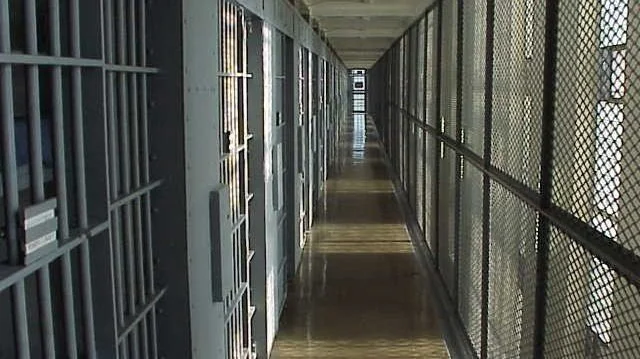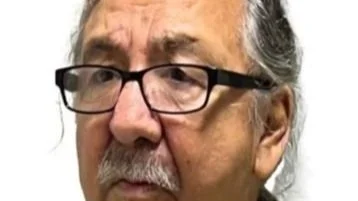Free at last. The history behind the holiday called Juneteenth is worth knowing, and the day is worth celebrating
I recall my first Juneteenth. I didn’t know what it was, but it seemed like people were having a good time, so I joined in.
It was 1986, and I had never heard of Juneteenth. I was living in Galveston, Texas, the birthplace of the historic holiday. It was a low-key affair, with food booths on the street, people dressed in colorful outfits and live music.
It has grown to include parades, festivals and other activities. Galveston has embraced its role as the founding location of Juneteenth.
The day commemorates the announcement by Union Major General Gordon Granger when he arrived in Galveston on June 19, 1865. He read General Order No. 3, letting slaves know they were free.
“The people of Texas are informed that in accordance with a Proclamation from the Executive of the United States, all slaves are free. This involves an absolute equality of rights and rights of property between former masters and slaves, and the connection heretofore existing between them becomes that between employer and hired laborer.”
The Civil War had officially ended in April, but not everyone got the word or wanted to accept the outcome. There was a battle on May 12-13, 1865, at Palmito Ranch, Texas. The South won that skirmish between Rebels and Union forces, strangely enough.
Slaves in Texas — there were around 250,000 in 1865 — were not told they had been freed by President Abraham Lincoln through the Emancipation Proclamation on Jan. 1, 1863. They were needed for fieldwork and other chores, so they were not told, even after Lee surrendered to Grant.
When federal troops arrived in Galveston, word spread that their enslavement was over. The celebration was explosive, as you can imagine.
Juneteenth is also known as Freedom Day, Liberation Day and Jubilee Day. It’s a big party, as well it should be.
Texas was the first state to make Juneteenth a state holiday, proclaiming it a day of special observance in 1980, thanks in large part to the efforts of state Rep. Al Edwards.
A Democrat from Houston, Edwards spent three decades in the Texas Legislature. He was known as “Mr. Juneteenth” but had many other accomplishments, serving as chairman of the Rules and Resolutions Committee and the Budget and Oversight of the Ways and Means Committee as well as being a member of the Appropriations Committee.
But Edwards, who died in 2020, knew the importance of history and symbolism. He knew African-Americans deserved a holiday of their own, one they could point to with pride.
That's why I discovered a burst of energy and creativity in Galveston on June 19, 1986. Living in Galveston from 1985-87 was an eye-opening experience for me, a white guy from a largely white, rural state. It was a multiethic community, with large black and Hispanic populations.
I worked, partied and played softball with Galvestonians and learned to appreciate their relaxed and happy approach to life. For two years, I was one of the few white players on the La Familia softball team and was made to feel part of the family. The fact that I could hit, play the outfield reasonably well and drink beer after the games made me fit right in.
Black, white and Hispanic residents intermingled easily in the 1980s. I recall days on the sandy beaches followed by long, hot nights, cool drinks, loud music and smiling people. Galveston is a resort town and people have a good time there.
They eat well, too, including seafood fresh from the gulf, barbecue and po' boy sandwiches ... now I’m hungry just remembering it.
Many Galveston natives refer to themselves as BOI — Born On the Island. They are proud of their city and island and shared stories of its history with me, from the days of it being known as the Wall Street of the South to the devastating 1900 hurricane to the wide-open years of gambling, prostitution and racketeering. The ZZ Top song “Balinese” tells it quite well.
It was the hiding place for pirate Jean Lafitte and the birthplace of the great boxer Jack Johnson. It’s filled with historic homes and fascinating places to tour. I last visited in 2005 and am eager to return, maybe for a Juneteenth celebration.
In 2020, Gov. Kristi Noem declared June 19 Juneteenth Day in South Dakota, and it became a state holiday in 2022. It was long overdue.
“South Dakota prides itself on Freedom,” Noem said in 2020. “We commemorate this important day to remind ourselves that there was a time in our history that not all Americans were free and to celebrate an important milestone toward achieving the American ideal: ‘all men are created equal.’”
South Dakota was the last state to make it a holiday, as North Dakota and, oddly, Hawaii, also finally joined the other states. It’s shameful it took so long, but it’s good to celebrate this important day in our shared history.
South Dakota is still a largely white state, but we are becoming more diverse, as a South Dakota Public Broadcasting report makes clear:
The Black population in South Dakota increased from 1.8% in 2010 to 3% in 2020;
The Native American population increased from 10.1% to 11.1%;
The Asian population increased from 1.3% to 2.1%.
In 2021, President Joe Biden signed legislation to make Juneteenth a national holiday (the signing ceremony is seen above in a public domain image posted on wikimedia commons). It was the first new national holiday since Martin Luther King Jr. Day was declared in 1983 following a 15-year battle against it from white conservatives. President Ronald Reagan signed the bill very reluctantly.
Gee, what do these two holidays have in common, and why did Republicans oppose both of them for so long? Biden made Juneteenth a national holiday shortly after taking office.
He and Vice President Kamala Harris hosted a Juneteenth celebration at the White House on Jan. 10, Biden talked about his decision to officially place it on the American calendar.
“But it wasn’t just a symbolic gesture. It was a statement of fact. It was about a statement of faith,” he said. “It was testimony of a testament to the resilience of generations of Black Americans who kept their eyes set on the nation’s North Star. That North Star was the idea that we’re all created equal in the image of God and deserve to be treated equally throughout our lives.
“While we’ve never lived up to it, we’ve never fully walked away from it either. That’s because of you and generations before you who led the march from slavery to freedom toward more than a perfect union,” Biden said. “But let’s be clear: There are old ghosts in new garments trying to take us back — well, there are — taking away your freedoms; making it harder for Black people to vote or have your vote counted; closing doors of opportunity; attacking the values of diversity, equity, and inclusion; if you can believe it, banning books about Black experiences in America; trying to erase and rewrite history.
“Our history is not just about the past, it’s about our present and our future. It’s whether that future is a future for all of us, not just for some of us,” he said. “Folks, Black history is American history. That’s why Kamala and I and our administration will always uplift it and protect it.”
So, yes, this is a landmark day, and one worth noting and celebrating. Happy Juneteenth.
Tom Lawrence, a fourth-generation South Dakotan, has written for several newspapers and websites in South Dakota and other states and contributed to The New York Times, NPR, The London Telegraph, The Daily Beast and other media outlets. Reprint with permission.







